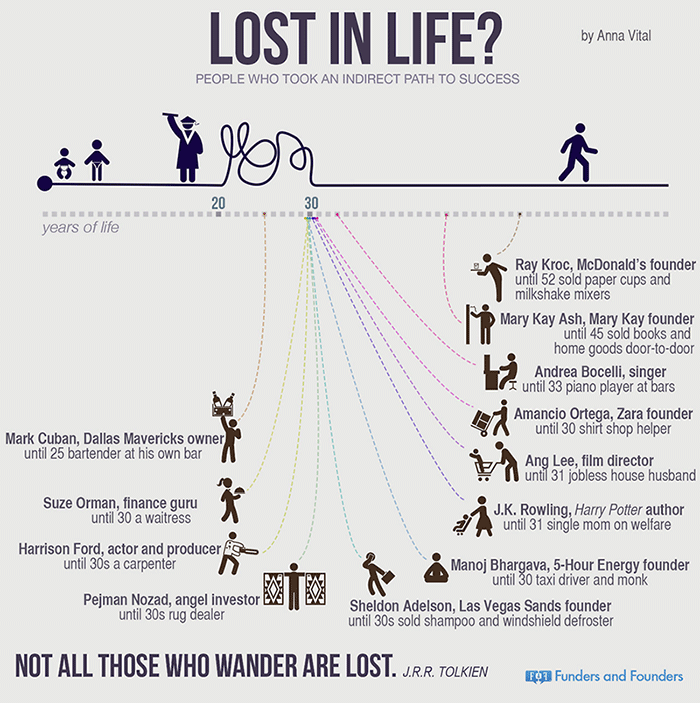
Aug 3, 2016 ● Kate Lopaze
What You Absolutely Need to Know About Changing Careers
Adaptable. Multi-faceted. Nimble. These flexible qualities are all trending in the current job market—so why is changing careers so difficult? Let’s look at some of the ways you can make a career switch, and get yourself ready to embrace the current job trends and demands.

Find Your Career Path(s)
Conventional wisdom suggests that we all have a career path, a specific trajectory. You start here, you’ll hit these points along the way, and you’ll end up there. The problem with this is that it sounds great in theory, but more often than not, reality gets in the way: economic downturns, personal life changes, and burnout can all interfere greatly with this linear plan. Plus, many of us choose that career path at a young age, right out of school or as an idealistic twentysomething. Are you the same person you were at 21? I’m not (thank goodness), and as someone with evolving skills and interests, I like to think that I’m not locked into a rigid path. Life coach Roman Krznaric, author of How to Find Fulfilling Work, believes in the concept of “wide achievers”: the idea that a career can be a composite of diverse jobs and experiences, instead of a straight line through one field. In this model, you’d set your goal as a skill set rather than a specific job title (for example, VP of Marketing). It involves rethinking our careers, and deciding whether you might have multiple paths you can take to the endgame of a satisfying career. But how do you navigate this, if you’re already in a job, or have a ton of very specific experience that may not travel into the field where you want to go next?Make a Smart Start to Your Change
If you already have a job, you don’t need to hand in your resignation and jump right into that deep end of finding your next career. Take time to figure out what you want to do. Think you might have an interest in bumping your photography hobby up into a professional photography gig? Try to hustle one or two freelance jobs on nights and weekends, and try to build a client base.If you already know where you want to go…
You should start by doing a self-assessment:- What types of jobs are available to someone with limited experience?
- What skills do I have already?
- What are the bare minimum skills required by this field I’m interested in joining?
- What development do I need?
- Am I willing to start from the bottom if necessary?
If you’re still trying to figure out what you want your new career to be…
…don’t sweat it. You may just know that you want A Change, and need to figure out what happens next. This option is a challenging one, to be sure—you’re starting from scratch. But that’s also the beauty of it: you’re starting from scratch! You don’t have preconceived notions, and can take the time to figure out what you really want to do, and why.Find Hot Career Change Industries
Where are the jobs and new opportunities? Right now, there are definite hotspot industries that are friendly to career changers. According to U.S. News and World Report, these fields are perpetually expanding to keep pace with society:- Healthcare. With the Baby Boomer population retiring and aging, healthcare needs and demands will continue to explode.
- Mobile technology. Got coding skills? If not, perhaps it’s time to start taking some courses? While some areas of the tech sector are declining, the innovations happening in mobile technology (apps, communications, etc.) keep on going.
- Data analytics. Sometimes it feels like we are little but a walking, talking collection of aggregated data points. Almost every industry is pulling in massive amount of information these days, and having the skills to parse and analyze that information is a huge selling point.



